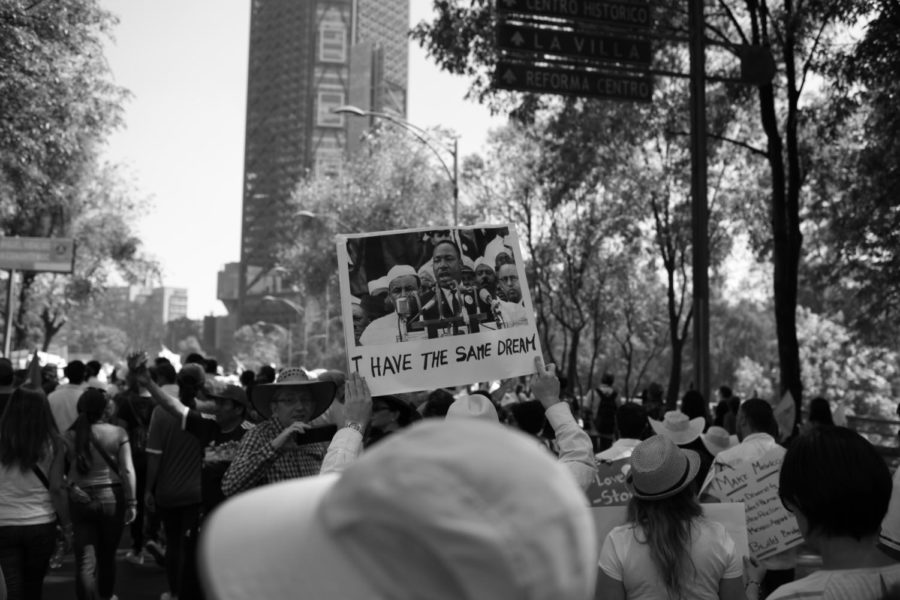Recap of Black History Month: Black lives on the big screen
Every year during the month of February, the U.S. celebrates the history and accomplishments of African-Americans. In 1976, U.S. President Gerald Ford asked the public to “seize the opportunity to honor the too-often neglected accomplishments of black Americans in every area of endeavor throughout our history,” officially recognizing Black History Month.
Some institutions in Qatar also observed this special month. A screening of “Selma” marked the celebration of Black History Month at Georgetown University in Qatar on Feb. 11.
The film, directed by Ava DuVernay, recounts one of the most significant events in the civil rights movement: Martin Luther King Jr.’s march in 1965 from Selma to Montgomery, Alabama, to secure equal voting rights for black Americans.
While many GU-Q students said they appreciated the film screening, some expressed disappointment that the university did not hold more events during the month. GU-Q freshman Khansa Maria said that the screening of “Selma” was only a small step towards an appreciation of black lives, but that it was “at least something.” Though she learned about Black History Month in her history class, Maria said she hopes that GU-Q can further build her knowledge on this topic.
“They should invite professors to talk about it [black history] and involve us students,” Maria said
Other Education City universities also commemorated Black History Month. Northwestern University in Qatar held a screening of the documentary “Tell Them We Are Rising” on Feb. 20. The film was co-directed and co-produced by NU-Q Professor of Communication Marco Williams. Attendees of the screening got a glimpse of the film before it premiered on Independent Lens on the Public Broadcasting Service in the U.S.
The documentary tells the story of Historically Black Colleges and Universities in America. It dives into the struggles and accomplishments of these HBCUs over the course of 150 years and the great influence they have had on American history.
“I’ve always known that they [African-Americans] had a hard history, but the movie was very effective in putting forward this point… it was thought provoking,” said Shafaq Zia, a freshman at NU-Q.
Although Zia enjoyed the film, she said she felt the event did not do enough to raise awareness about Black History Month.
“The fact that we [NU-Q] didn’t raise awareness by telling people that we’re doing this screening in Black History Month defeated the purpose,” said Zia.
Nanci Martin, communications and public affairs director of NU-Q, explained that, “we [NU-Q] scheduled the screening in February because it was Black History Month; however, the promotion was just for the screening.”
In the future, Zia suggested that NU-Q, along with Education City, should promote the message that the month of February is a celebration of black history so that students from a multitude of backgrounds can consciously be a part of the celebration.
Maha Hassan, a freshman at NU-Q from Somaliland, agrees. She says that when she lived in the U.S., stories of prominent black figures were readily available.
“There would be historical facts up on boards around the school,” said Hassan. These little facts are what prompted Hassan to go further and learn more about black history every year.

In Qatar, however, Hassan said she has had to go search for these facts herself. At the start of the month she visited the Qatar National Library in pursuit of “The Autobiography of Malcolm X.”
Around the world, February also welcomed the Marvel blockbuster “Black Panther.” The film, released in the U.S. on Feb. 16, was highly anticipated and, according to Box Office Mojo, had the largest February film opening of all time. The movie gained much popularity having been the first superhero movie to be made with a predominantly black cast by a black director and released during Black History Month.
Excitement for the release of the movie was expressed on social media with thousands of people demonstrating that the only way to celebrate the movie was to dress the part. On Twitter and Instagram, Black Panther enthusiasts posted pictures of themselves and their family and friends wearing African clothing, such as dashikis, with captions such as, “pulling up to see Black Panther like…” In Qatar, people showcased their outfits to the movie on Twitter.

Theaters were packed with individuals of various age groups, nationalities and race. With the emergence of a film with a black narrative, people’s attention was brought to the role of black individuals in the media industry and the world.













